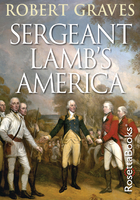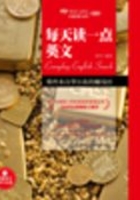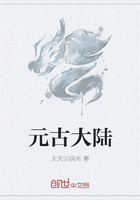The three of them emerged from the main entrance of the Mestre Questura and started down the steps. Vianello put an arm around Ribetti's shoulder and said, 'Come on, Marco, the least we can do is give you a ride back to Piazzale Roma.' Ribetti smiled and thanked him. He wiped a hand over his eyes and drew it down one side of his face, and Brunetti could almost feel it graze across his unshaven cheek. As they continued down the steps towards the waiting car, a taxi pulled up and a short, squat man with white hair got out. He leaned in to hand money to the driver and turned to look up at the building. And saw them.
He gave a savage shove to the door of the taxi, slamming it shut behind him. 'You stupid bastard!' he shouted, starting across the pavement. The taxi drove off. The old man stopped, one hand raised, waving it at them. 'You stupid bastard,' he shouted again and started up the steps towards them. Brunetti and the others stopped halfway down, frozen with astonishment.
The man's face was distorted with anger and livid with years of drink. So short he would not reach Brunetti's shoulder, he was almost twice as broad, with a thick torso that was moving downward as muscle turned to paunch. 'You and your animals and your trees and your nature, nature, nature. Go out there and cause trouble and get arrested and get your name in the paper. Stupid bastard. You never had any sense. Now those bastards at the Gazzettino are calling me.'
Brunetti placed himself between the old man and Ribetti. 'I'm afraid there's been some misunderstanding, Signore. Signor Ribetti has not been arrested. Quite the contrary: he's here to help the police with their inquiries.' Brunetti had no idea why he lied. There would be no investigation, so there was no way Ribetti could help with it, but the old man needed to be stopped, and usually people of his age were most easily stopped by mention of the forces of order.
'And who the hell do you think you are?' the old man demanded, tilting his head back to stare up at Brunetti. Without waiting for an answer, he tried to step around Brunetti, who moved to the left and then to the right to stand in his way.
The old man stood still and raised a finger to the height of his own shoulder and poked Brunetti in the chest, saying, 'Look, you bastard, get out of my way. I don't want any interference from strangers.' He took a half-step to the left, but Brunetti blocked him again. 'I said get out of my way!' the old man shouted, this time putting his hand on Brunetti's arm. It could not be said that the old man grabbed Brunetti's arm, nor that he pulled at it, but it was certainly not the casual contact of a man trying to get his friend's attention to make a point.
Vianello came down two steps and stood to the old man's left. 'I think you'd better take your hand off the Commissario, Signore.'
The old man, however, had been carried beyond hearing by his fury. He tore his hand from Brunetti's arm and pointed at Vianello. 'And don't you think you can get in my way, either, you bastard.' His face had grown puce, and Brunetti wondered if he would have some sort of seizure: he had seldom seen a man so easily catapult himself into rage. Sweat stood on the old man's forehead, and Brunetti saw his hands tremble. Spittle had collected at the corners of his mouth, and his eyes, small and dark, appeared to have grown even smaller.
From behind him, Brunetti heard Ribetti say, 'Please, Commissario; he won't cause any trouble.'
Vianello could not hide his surprise, and Brunetti's was apparent to the old man. 'That's right, Signor Commissario whoever you are: I won't cause any trouble. He's the one who causes trouble. Stupid bastard.' He turned his glance from Brunetti to Ribetti, who now stood to Brunetti's left. 'He knows me because he married that fool, my daughter. Went right where he knew the money was and married her. And then filled her with his shitty ideas.' The old man made as if to spit at Ribetti but changed his mind. 'And gets himself arrested,' he added, looking at Brunetti to make it clear that he did not believe what he had been told.
Ribetti caught Brunetti's attention by placing his hand on his arm. 'Thank you, Commissario,' he said, and then to Vianello, 'And you, too, Lorenzo.' Ignoring the old man completely, he moved off to the left and started down the steps. When he reached the sidewalk, Brunetti saw him look at the parked police car, but he continued past it, walked to the next corner, and disappeared around it.
'Coward,' the old man shouted after him. 'You're brave enough when you try to save your goddamn animals or your goddamn trees. But when you have to face a real man …' Suddenly the old man ran out of abuse. He looked at Vianello and Brunetti as if he wanted to commit their faces to memory, then pushed past them and went up the steps and into the Questura.
'Well?' Brunetti asked.
'I'll tell you about it on the way back,' Vianello said.
The story that Vianello told Brunetti on the way back to Venice was one he had followed during the six months that a former classmate of his had worked as a maestro in the glass factory of Giovanni De Cal, the old man on the steps, before quitting and moving to a different fornace. It began as a typical story of romance and marriage. She dropped a bag full of oranges at Rialto, and a stranger turned around from buying shrimp to chase the oranges and try to collect them for her. She laughed and thanked him, offered him a coffee for his help, and they talked for an hour over the coffee. He walked her to her boat, took her telefonino number, subsequently called and asked her if she wanted to see a film, and four months later they were living together. Her father, Giovanni De Cal, objected, insisted the young man was a fortune hunter. No longer young, never very pretty, the only job Assunta had ever had was in her father's factory … who'd want a woman like that if not for her money? Behind this was the less publicly expressed question of who would look after him if she married and left him, a widower, alone in a ten-room house, too busy running his business to be able to take care of it himself.
Reader, she married him. Worse was in store when the young man's principles and politics, his concern for the environment and suspicion of the current government, came into conflict with his father-in-law's philosophy: it's a dog-eat-dog world, and workers are meant to work, not to lie around collecting money from their employers for doing nothing; growth and progress are always good, and more is better.
Even worse, from the old man's point of view, were the young man's education and profession. Not only was he a university graduate and thus one of those useless 'dottori' who had studied everything and yet knew nothing; he compounded the fault by working as an engineer for the French company that had won the contract to build garbage dumps in the Veneto, for which he conducted site analyses of location, proximity to rivers and ground water, and soil composition. He wrote reports that obstructed the building of garbage dumps, wrote further reports that made their construction more expensive, and all paid for by money taken from the pockets of people like factory owners, who paid taxes so that the lazy and weak could suck off the public tit and engineers could force cities to spend money just so that some fish and animals wouldn't get dirty or sick.
Ribetti and his wife, Assunta De Cal, lived in a house on Murano that had been left to her by her mother. Caught between father and husband, she tried to keep both peace and house: because she worked in her father's factory all day, neither task was easy. De Cal, as Brunetti and Vianello had observed, was a choleric man, the owner of a glass factory on Murano that had been in his family for six generations.
Vianello paused at this point in the story and said, 'You know, hearing myself tell you all this, I'm not sure why I know this much about them. It's not as if Pietro told me all this while he was working there. I mean, even though Marco and I went to school together, we lost touch until about three years ago, so it doesn't make any sense that I know all this. It's not like we're close friends or anything, and he's never talked about the old man.' Vianello was sitting in the back seat of the car taking them across the Ponte della Libertà, so as he spoke, he saw Brunetti's head framed by the smokestacks of Marghera.
It occurred to Brunetti that Vianello might still, after all this time, not realize the full extent of his ability to draw people into conversation and then into confidence with him. Perhaps it was a natural gift, like perfect pitch or the ability to dance, and those who had it were incapable of seeing it as in any way unusual.
Vianello recaptured Brunetti's attention by waving at the Marghera factories and saying, 'You know I agree with him, don't you?'
'About the protests?'
'Yes,' Vianello answered. 'I can't join them, not with this job, but that doesn't stop me from thinking they should protest and hoping that they continue to do it.'
'What about De Cal?' Brunetti asked, realizing that they would reach Piazzale Roma in a few minutes and eager to prevent Vianello from launching into another discussion about the fate of the planet.
'Oh, he's a bastard,' Vianello said, 'as you saw. He's fought with everyone on Murano: over houses, over salaries, over … well, over anything people can fight about.'
'How does he manage to keep his workmen?' Brunetti asked.
'Well, he does and he doesn't,' Vianello said. 'At least that's what I've heard.'
'From Ribetti?'
'No, not from him,' Vianello answered. 'I told you he doesn't talk about the old man, and he doesn't have anything to do with the fornace. But I've got relatives on Murano, and a couple of them work in the fornaci. And everyone knows everybody's business.'
'What do they say?'
'He's kept the same two maestri for the last couple of years,' Vianello said, then added, 'That's something of a record for him, even if they're not very good. Not that it matters so much, I suppose.'
'Why not?' Behind Vianello's head Brunetti saw the side of the Panorama bus: they would soon be there.
'All they make is that tourist crap. You know, the porpoises leaping up out of the waves. And toreadors.'
'With the capes and the black pants?' Brunetti asked.
'Yes, can you believe it, like we had toreadors here. Or porpoises, for that matter.'
'I thought they were all made in China or Bohemia by now,' Brunetti said, repeating something he had heard frequently, and from people who should know.
'Lots of it is,' Vianello said, 'but they still can't do the big pieces, at least not yet. Wait five years and it'll all be coming from China.'
'And your relatives?'
Vianello turned his palms up in a gesture of hopelessness. 'Either they'll learn how to do something else, or everyone will end up like your wife says we will: dressing in seventeenth-century costumes and walking around, speaking Veneziano, to amuse the tourists.'
'Even us?' Brunetti asked. 'The police?'
'Yes,' Vianello answered. 'Can you imagine Alvise with a crossbow?'
Laughter put an end to their conversation, and the matter lapsed, merging into the stream of gossip that flowed through Venice, much of it no cleaner than the water that flowed in the canals.
When they were back at the Questura, Brunetti went to Signorina Elettra's office to see if the staffing list had been prepared for the Easter holiday. 'Ah, Commissario,' she said as he entered the office, 'I've been looking for you.'
'Yes?' he asked.
'It's the lottery, you see,' she said easily, as if he should know what she was talking about. 'I wondered if you'd like to buy a ticket.'
Even before he considered what sort of a lottery she was referring to, whether related to Easter or to one of Vianello's green projects, he answered, 'Of course', reached into his back pocket and took out his wallet. 'How much?'
'Only five Euros, sir,' she said. 'We figured we'd sell so many tickets that we could keep the price down.'
'Fine, then,' he said, taking out a note, only half listening.
She thanked him and drew a block of notepaper towards her. 'What date would you like, sir?' She looked around her desk, hunting for a pen, then looked up at him again. 'Any time after the first of May, sir.'
For a moment, Brunetti toyed with the idea of choosing the tenth of May, Paola's birthday, and not inquiring further, but curiosity overcame him and he said, 'I don't think I understand, Signorina.'
'You have to choose a date, sir. The person who gets the right date wins everything that's been bet.' She smiled, adding, 'And yes, you can choose more than one date, so long as you pay five Euros for each one.'
'All right,' Brunetti said. 'I confess. I don't know what you're talking about.'
Signorina Elettra put her hand to her mouth, and he thought he saw a faint blush cross her cheeks. 'Ah …' she let escape a long sigh, as though she were a soccer ball and someone had let the air out of her. He watched the play of expressions on her face, saw her toy with the idea of lying, then opt for the truth. Brunetti knew all of this, but didn't know why or how he knew it.
'It's about the Vice-Questore, sir,' she said.
'What about him?' Brunetti asked without impatience.
'About the Interpol job.'
'You mean he applied?' Brunetti asked, unable to contain his surprise that Patta had actually done it. It is perhaps more accurate to say that he was surprised that he had not been told that Patta had applied for the position – at Patta's level, jobs were called positions.
'Yes, sir. Four months ago.'
Brunetti could no longer remember the precise nature of the position his superior had been interested in. He had a vague memory that it involved working with – or, as people with positions said, 'liaising' with – the police of some other nation the language of which Patta did not speak, but he could no longer recall which one.
Into his silence, she supplied the answer. 'In London, sir. With Scotland Yard, as their expert on the Mafia.'
As so often happened when he learned of developments in Patta's professional life, Brunetti found himself without suitable words. 'And the lottery?' he finally asked.
'The date he gets the rejection letter,' she said, voice implacable.
He cared nothing for the details, but he wanted to know. But how to put it? 'You seem rather certain of that outcome, Signorina.' Yes, that was how to put it.
'I am,' she said but offered no explanation. Smiling, she waved the pen over the block of paper. 'And the date, sir?'
'May the tenth, please.'
She wrote the date on the top of a small sheet of paper, tore it off, and handed it to him. 'Don't lose it, sir.'
'In the case of a tie?' he asked as he slipped the paper into his wallet.
'Oh, that's already decided, sir. There are a few dates a number of people want, but it's been suggested that, in the case of a tie, we give all the money to Greenpeace.'
'He would, wouldn't he?' Brunetti asked.
'Who would what, sir?' she asked with every appearance of confusion.
He let out a little puff of air, as if to suggest that even the blind could see the mind at work behind that suggestion. 'Vianello.'
'As a matter of fact, sir,' she said, no change in the sweetness of her smile, 'the idea was mine.'
'In that case,' he picked up seamlessly, 'I'll live in the single hope that I win in a tie so that I can be a part of the money's going to such a noble cause.'
She looked at him, her expression neutral, but then the smile returned and she said, 'Ah, just listen to the falseness of the man.'
Brunetti was surprised by how flattered he felt and went back to his office, all thought of holiday staffing forgotten.















